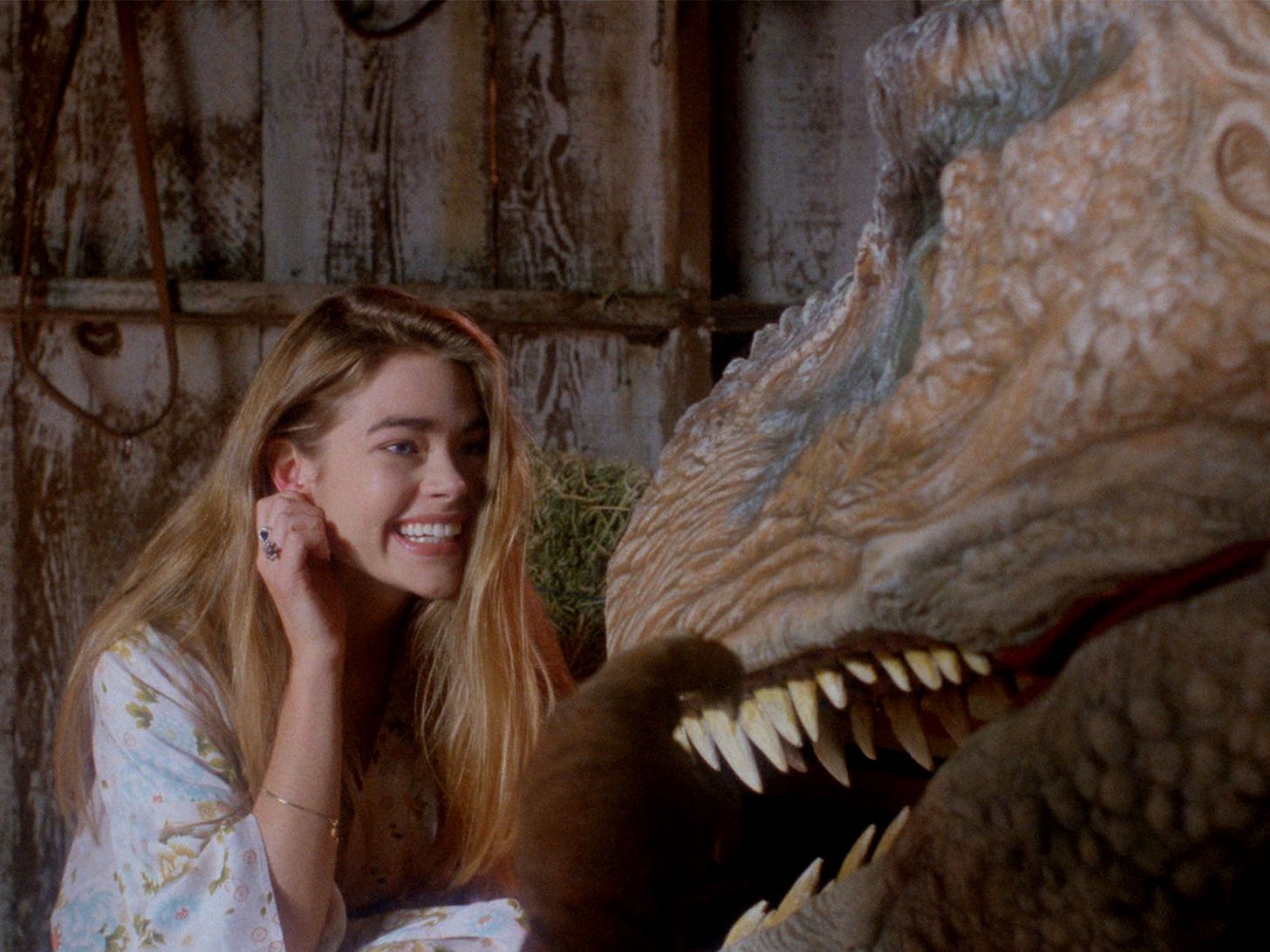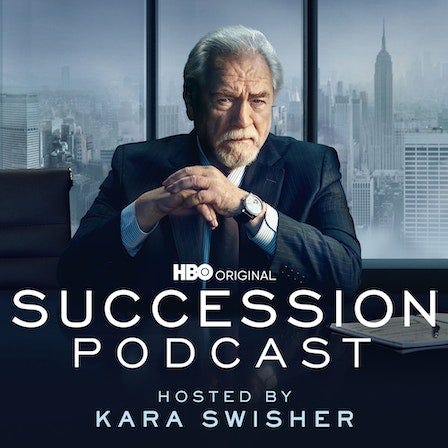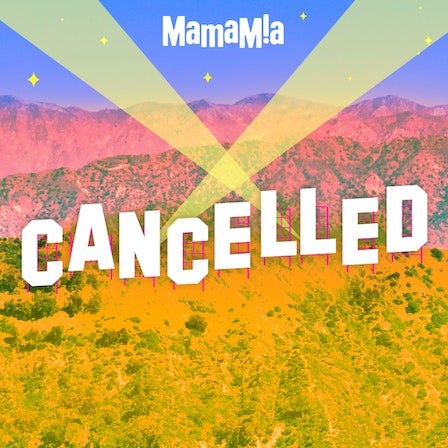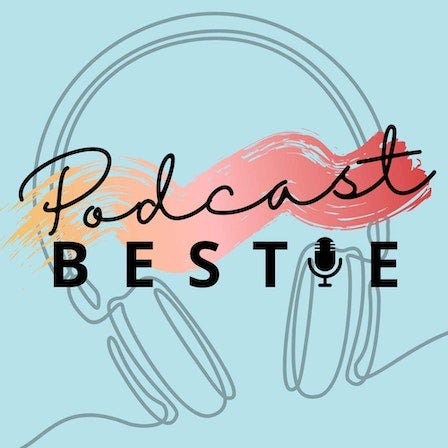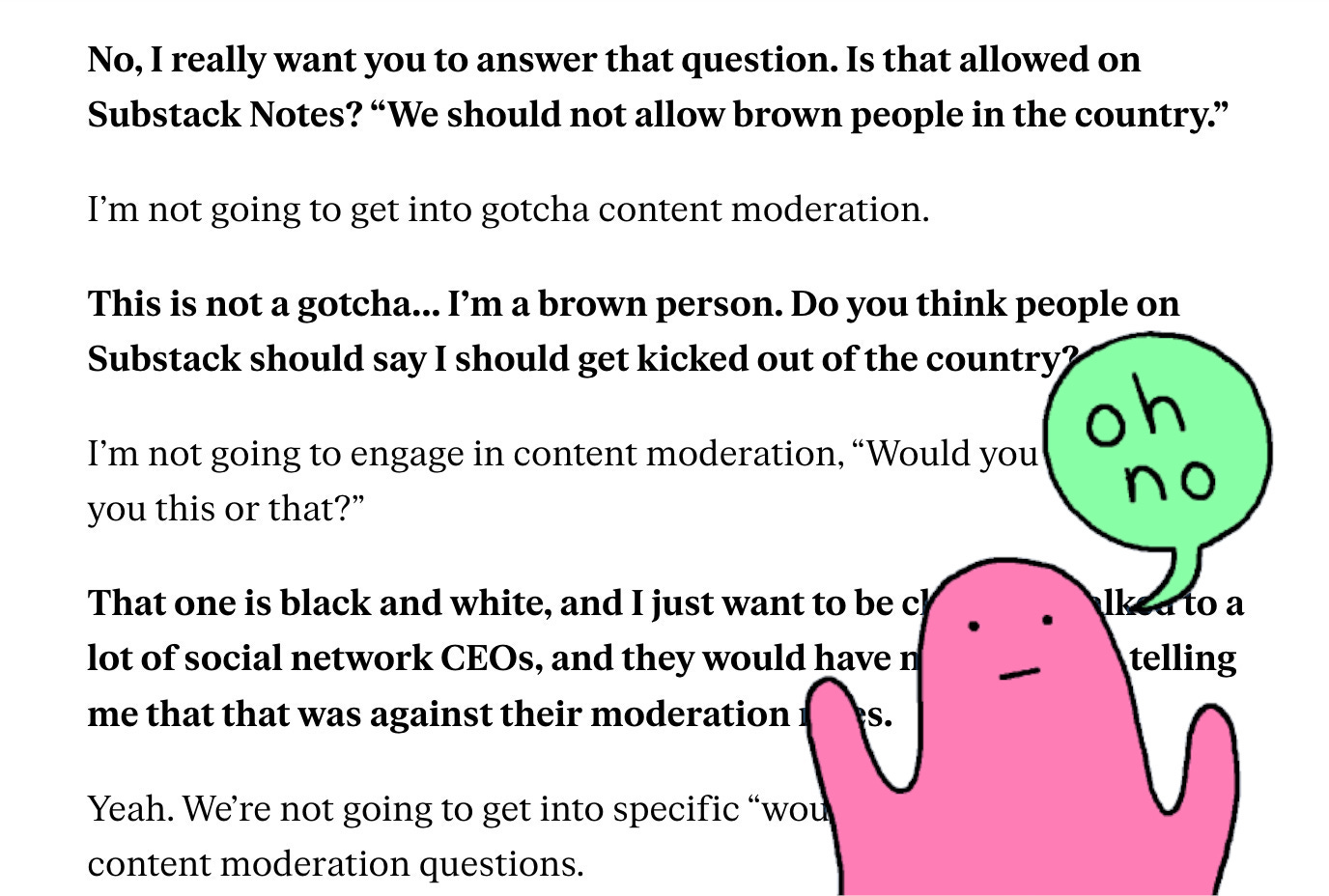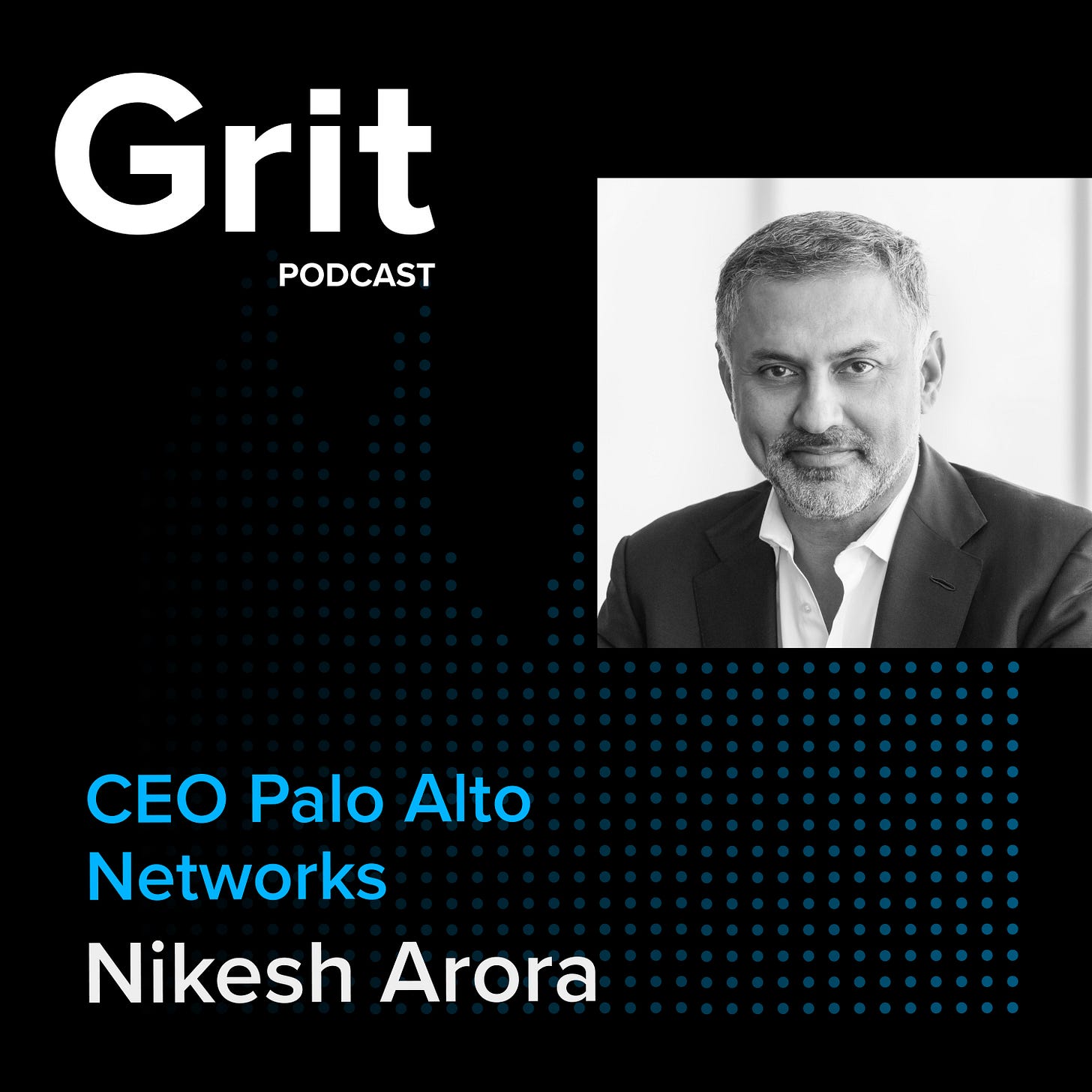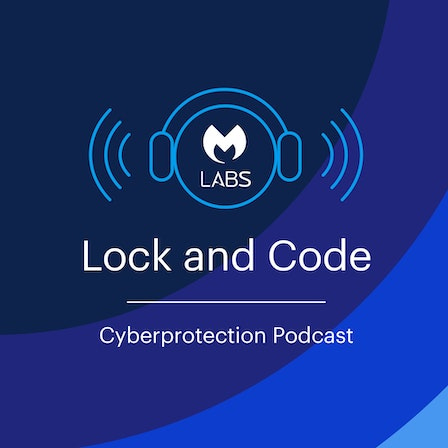Orlando Bloom, a Teenage T-Rex, and Substack Notes shoots itself in the foot
Plus: Succession's shock (no spoilers), advice for podcasters, and who's buying your location data?
Welcome to Follow Friday!
A lil programming note: I’m off next week and probably won’t be sending a newsletter, but let’s try something…
Reply to this email (or email me, followfriday[at]lightningpod[dot]fm) with one of these:
A couple sentences about a podcast episode you loved listening to (not your own)
A great article or newsletter post you’ve read recently (again, not your own)
A photo/video of a cute or funny animal, or link to one you’ve found online (can definitely be yours!)
Make sure to include your first name so I can credit you. If I get enough replies before Thursday, April 20, and if I have time, I’ll put together the best submissions into a special edition. Show me what you got!
The single best thing I saw online this week: This PERFECT parody of the intro to Succession featuring a different Roy(al) Family. No spoilers, except for real life:
The best podcasts I’ve heard this week
Continuing the theme: I really thought I wouldn’t be talking about Succession this week in the newsletter… And then they went and dropped what might be the best episode of the series??? Shocking, brilliant, heartbreaking, etc. So once again, I spent a lot of my podcast hours this week listening to the reactions. I won’t spoil what happened here, but the official HBO’s Succession Podcast goes deep behind the scenes of the [redacted] of [redacted] via two insightful and funny interviews.
Via Podcast The Newsletter, I checked out a new-to-me show called Cancelled this week, and I’m really glad I did. Hosted by Jessie & Clare Stephens, it’s an effervescent chat show about celebrities who have been (allegedly) canceled for various wrongdoings, and whether we should actually care. I’ve only listened to one episode so far, “Orlando ‘Put Your Penis Away’ Bloom” (NSFW, obvi) but it won’t be my last.
This one is for my fellow podcasters: Podcast Bestie is a newsletter by Courtney Kocak full of great insights on creating/marketing/monetizing podcasts. This is not an ad, I'm just a fan. And on her new companion podcast, Courtney recently interviewed Gary Arndt, the creator and host of indie success story Everything Everywhere Daily. If you work in this field and are looking for actionable advice, do not skip this one. I pulled out my phone approximately 50 times while listening to write down things Gary said.
help i’m (wary of getting) obsessed with substack notes
Subtack’s new social media product, Notes, launched to the public this week, and it’s promising. The design is clean, it’s a natural extension of newsletters like this one, and when you open up the app, your feed is already full of posts. Not just from the writers you follow, but also the people they follow. Hey, someone should make a podcast around that idea!
I want to get into Substack Notes. But I’m wary of committing to it, and a recent interview reinforces my doubts.
Right now, the market for Notes is all people like me who are absolutely done with Twitter and not going back. Which is why a lot of us were alarmed by an interview CEO Chris Best gave to The Verge’s Nilay Patel on the Decoder podcast, in which he refused to “engage in content moderation,” even on blatantly racist language. Here’s an excerpt:
But it’s the thing that you have to do. I mean, you have to make these decisions, don’t you?
The way that we think about this is, yes, there is going to be a terms of service. We have content policies that are deliberately tuned to allow lots of things that we disagree with, that we strongly disagree with. We think we have a strong commitment to freedom of speech, freedom of the press. We think these are essential ingredients in a free society. We think that it would be a failure for us to build a new kind of network that can’t support those ideals. And we want to design the network in a way where people are in control of their experience, where they’re able to do that stuff. We’re at the very early innings of that. We don’t have all the answers for how those things will work. We are making a new thing. And literally, we launched this thing one day ago. We’re going to have to figure a lot of this stuff out. I don’t think…
You have to figure out, “Should we allow overt racism on Substack Notes?” You have to figure that out.
No, I’m not going to engage in speculation or specific “would you allow this or that” content.
You know this is a very bad response to this question, right? You’re aware that you’ve blundered into this. You should just say no. And I’m wondering what’s keeping you from just saying no.
I have a blanket [policy that] I don’t think it’s useful to get into “would you allow this or that thing on Substack.”
If I read you your own terms of service, will you agree that this prohibition is in that terms of service?
I don’t think that’s a useful exercise.
This sort of stonewalling — while hiding behind “free speech,” which Substack, a private company, is under no obligation to offer blanket protections for — is extremely concerning. Launching a social media product without a clear answer to this question is an open invitation for the worst kind of people to start testing the fences. And when their right to “free speech” is prioritized over the safety of marginalized creators, all of us lose.
The latest from LightningPod
Here’s what I’ve been producing and editing this week. For more, follow LightningPod on LinkedIn.
On Grit, Palo Alto Networks CEO Nikesh Arora spoke with Joubin Mirzadegan about why he has kept more than 400 job rejection letters, his experience working at Google and SoftBank, and a lesson in leadership from the early days of COVID-19. “There was a tremendous amount of anxiety and fear and uncertainty,” he says. “And this person I was talking to says, ‘Listen, your job as a leader is to create certainty.’ [...] It’s simple: Tell your employees you have their back.”
On the Brand Publishing Show, McKinsey & Company’s global publishing leader Raju Narisetti talked with Shareen Pathak about how traditional media and brand publishing are diverging, why not every company needs to be a media company, and how he plans to own the AI conversation.
And finally, on Lock and Code, David Ruiz interviewed Bennett Cyphers (great name!) from the Electronic Frontier Foundation about location data. Specifically, Bennett was part of a team that investigated Fog Data Science, which exclusively sells this data to US law enforcement agencies. He explains how it’s collected, where it comes from, and why it’s so easy to sell.
Palate cleanser: The greatest movie trailer I’ve ever seen
As one of the YouTube comments points out, it sounds like the voice-over guy is just ad-libbing based on what’s currently on screen. PSA, this movie is streaming on Peacock, in case your interest has been piqued.
Trust me and click these:
Cats stealing food in still life paintings
An excellent comic about a stick-up
Panda cubs trolling their nanny

